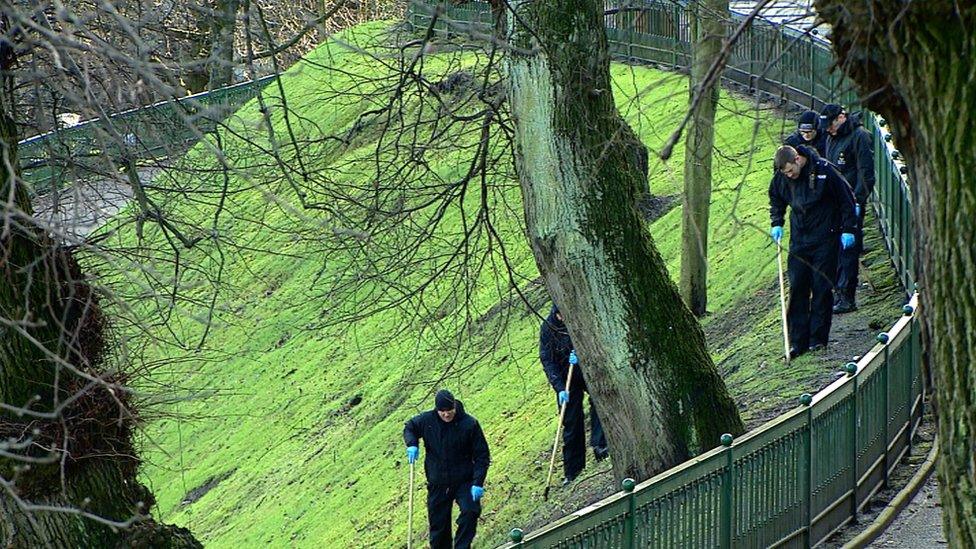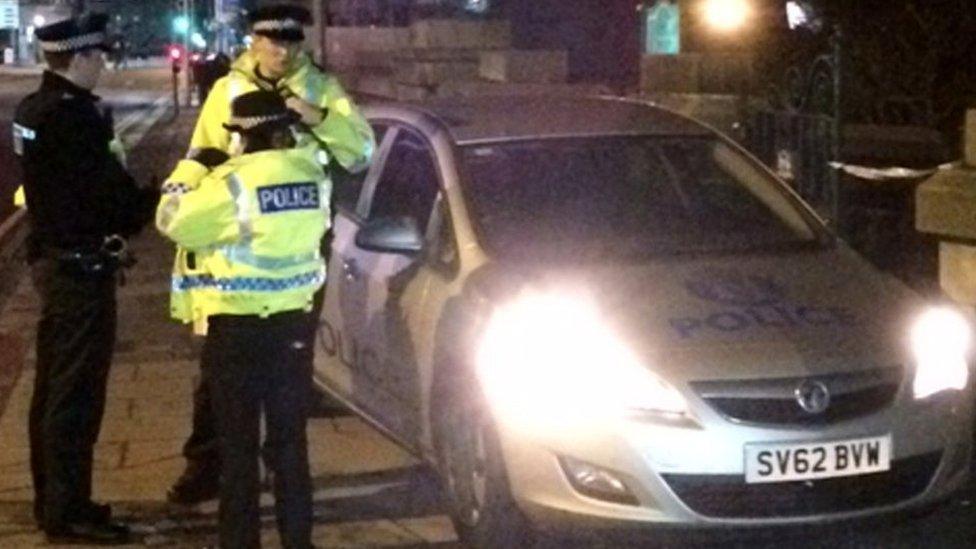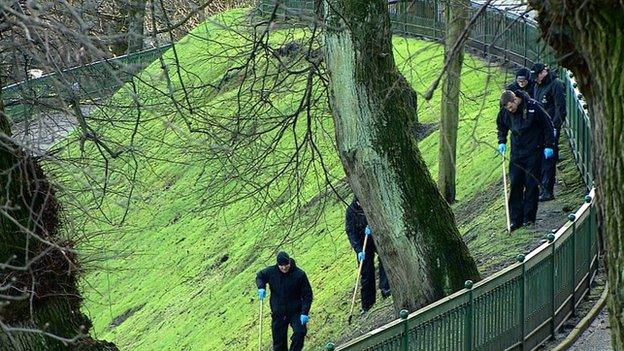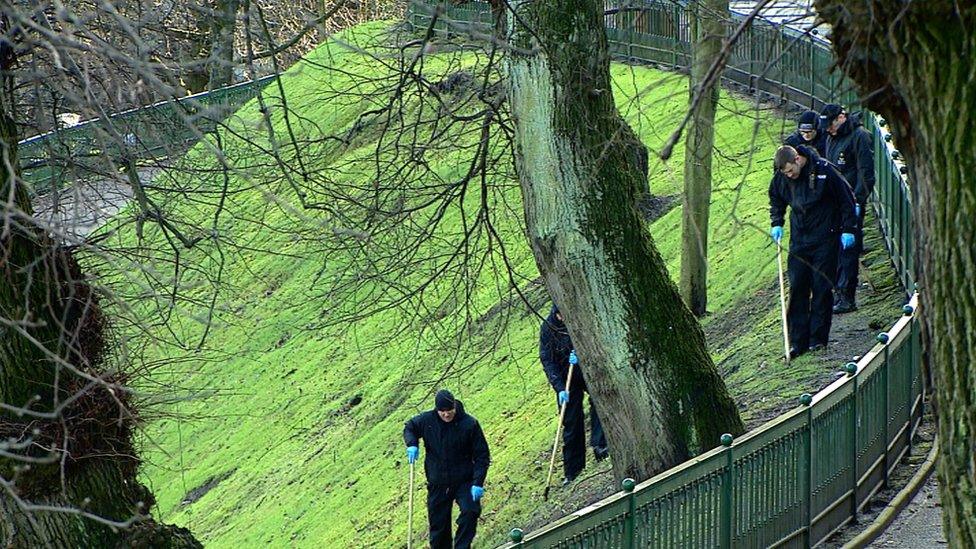Survivor of 'abhorrent' rape speaks out
- Published
'I didn't do anything wrong that night'
A woman who survived a brutal rape in Aberdeen is urging victims of sexual violence to report it to police.
Katie Johnston, 23, has waived her right to anonymity for an exclusive interview with BBC Scotland.
She was assaulted in the city's Union Terrace Gardens in January 2016, after a night out with friends.
Her attacker, Alasdair McDonald, 49, was convicted of rape at the High Court in Glasgow on Monday and will be sentenced next month.
During the early-morning assault, Ms Johnston was forced to the ground, repeatedly struck on the head and her breathing was restricted.
She was then dragged into bushes and raped.
"I understand it was careless to go into the gardens at that time," she told BBC Scotland.
"But people should have the right to walk anywhere they want in a public place without the fear of being attacked."
Ms Johnston added: "After the attack, I ran out of Union Terrace Gardens and onto Union Street to try and find someone to help me.
"I remember feeling like the attacker was running after me still. I didn't feel safe. There was no one about who was able to help me. It was very quiet that night. So I decided to just head to the police station."
It was a difficult case for police, because Katie's attacker was a stranger. It took more than a year and a half for him to be caught.

A major investigation was launched after Ms Johnston reported the attack to police
McDonald was charged in September last year.
During his trial at the High Court in Glasgow, he admitted sexually assaulting Ms Johnston but he denied raping her.
She faced him in court.
"Obviously they have measures in place for victims if they don't want to see the attacker or be in the same room," she said.
"But I chose not to have special measures. I just wanted to see what my attacker looked like. And I didn't want to be viewed as some sort of victim."
Ms Johnston said she decided to waive her right to anonymity to appeal directly to survivors of sexual assault.
Stood up in court
"I feel there's nothing I should be ashamed about," she said.
"I didn't do anything wrong that night. Sometimes victims are ashamed to come forward, or scared because they don't know what will happen or they don't think the police will believe them, but I am proof that it does work in the end.
"I went and reported my crime and even though there was some points when there was too many questions, I got through it. I stood up in court and I want to make sure others can do the same. As soon as you start talking to someone, it makes it easier."
Asked if she could imagine what her life would have been like if she had not reported the attack, Ms Johnston said it would have been "very difficult".
"I would have been left with the thought of that night every day," she said.
"And a feeling of it not getting better. Whereas, when I reported it I thought there was light at the end of the tunnel."

Ms Johnston urged other survivors of sexual violence to report their attacks to the police
Earlier this week, campaigners criticised a new policy which could compel reluctant rape victims in Scotland to give evidence.
Ms Johnston said it was a "bad idea".
"Some victims are already scared enough as it is to come forward to police, never mind stand up in a courtroom and face the accused," she said.
"So I think they may scare victims away from coming out because they will think they will have to go to court."
Judge Lord Arthurson told Alasdair McDonald he had been convicted of an abhorrent sexual offence against a young woman. He will be sentenced next month.
"I feel I can start to move on now," said Ms Johnston.
"He isn't wandering about. I can't bump into him. I feel like justice has been served."
Sandy Brindley, of Rape Crisis Scotland, praised Ms Johnston's decision to speak out about her ordeal.
She said: "Seeing other survivors waive their anonymity and speak publicity about what they have been through can send a really powerful message to other survivors, that it's ok to speak about what has happened to you, and that the shame doesn't belong to you but to the person who did this to you.
"Whether to report to the police is a personal decision, but people should feel confident that they will be treated seriously and with sensitivity if they do."
- Published12 March 2018

- Published22 September 2017
